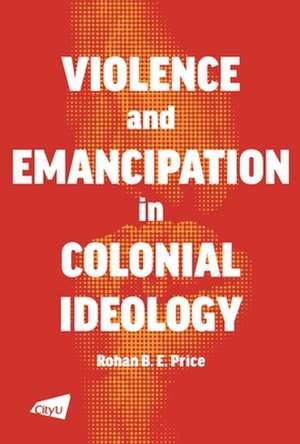Violence and Emancipation in Colonial Ideology
Autor Rohan B.E. Priceen Limba Engleză Paperback – 29 noi 2019
Preț: 289.89 lei
Nou
Puncte Express: 435
Preț estimativ în valută:
55.47€ • 59.32$ • 46.25£
55.47€ • 59.32$ • 46.25£
Carte disponibilă
Livrare economică 28 martie-11 aprilie
Livrare express 13-19 martie pentru 34.43 lei
Preluare comenzi: 021 569.72.76
Specificații
ISBN-13: 9789629374495
ISBN-10: 9629374498
Pagini: 300
Dimensiuni: 152 x 229 x 29 mm
Greutate: 0.5 kg
Editura: City University of Hong Kong Press
ISBN-10: 9629374498
Pagini: 300
Dimensiuni: 152 x 229 x 29 mm
Greutate: 0.5 kg
Editura: City University of Hong Kong Press
Descriere
Using the insurrection by the Malayan Communist Party (1948-1960) as an example, this book argues that resorting to violence sped up the decolonisation of British Malaya, begging the question: if a late colonial state was subjective, then how did it claim a sufficiently objective mantle to rule and how did ideological techniques enable this?
